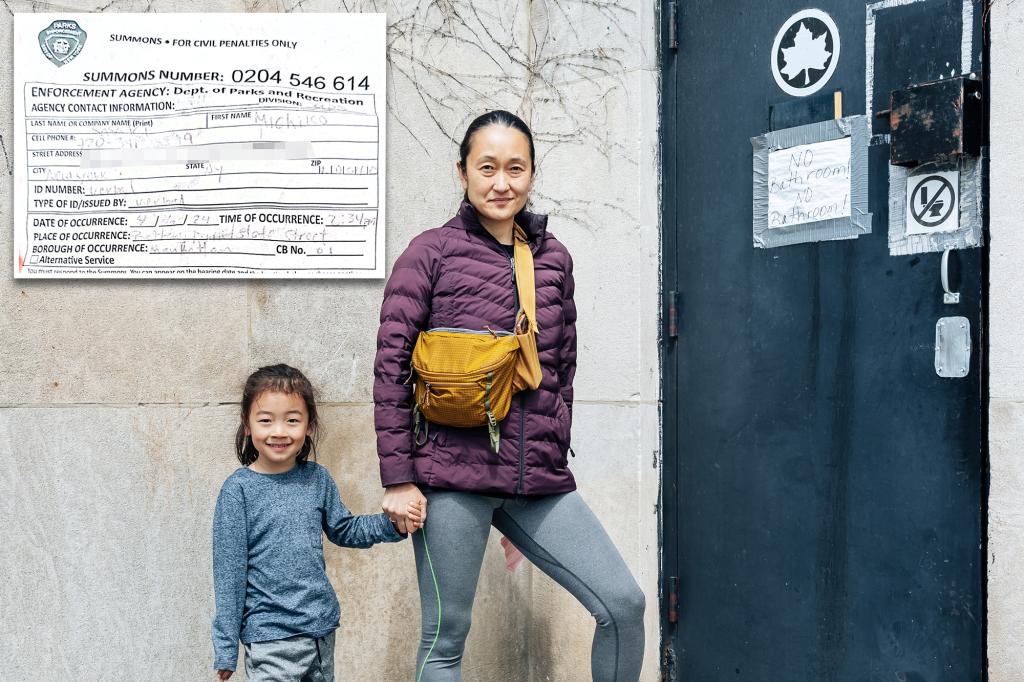Michiko Sasaki, a local mother, was fined $50 for allowing her four-year-old son to urinate outside in Battery Park city. While spending a day at the Battery Playscape, Sasaki’s son suddenly needed to use the restroom, but found the closest one to be closed. Her son, who has anxiety issues and sensory processing disorder, did not realize he needed to go until the last moment, prompting Sasaki to allow him to urinate outside as an emergency situation. However, this act led to parks officers issuing her a ticket for the act.
Feeling bewildered and confused by the situation, Sasaki complied with the officers and was fined $50 with a hearing date set for July. The officers criticized her parenting choices and suggested that she should have gone to a nearby upscale restaurant for a restroom. Sasaki felt that the officers were rude and diminishing in their approach. She noted that finding public restrooms for children can be a daily struggle for parents, especially given that many establishments do not allow non-patrons to use their facilities.
Despite the availability of two other public restrooms in the park, Sasaki and her son were not directed to them by the parks officers. New York City Parks Department maintains over 1,600 public restrooms across the five boroughs to ensure that all New Yorkers can enjoy the parks comfortably. Public urination is prohibited, and the department encourages the use of designated facilities. Sasaki argues that the distance of the alternative restrooms from where they were playing made it impractical in an emergency situation.
The city of New York decriminalized petty offenses like public urination in 2017, making it a civil offense punishable by fines rather than criminal citations. Sasaki intends to fight the ticket she received, emphasizing that while public urination is not acceptable for adults, in this case, it was a child facing an emergency situation. She believes that the $50 fine is more about the principle of the matter than the actual amount. Sasaki hopes that her experience will shed light on the difficulties parents face in finding public restrooms for their children and that awareness will lead to more understanding and support in such situations.


